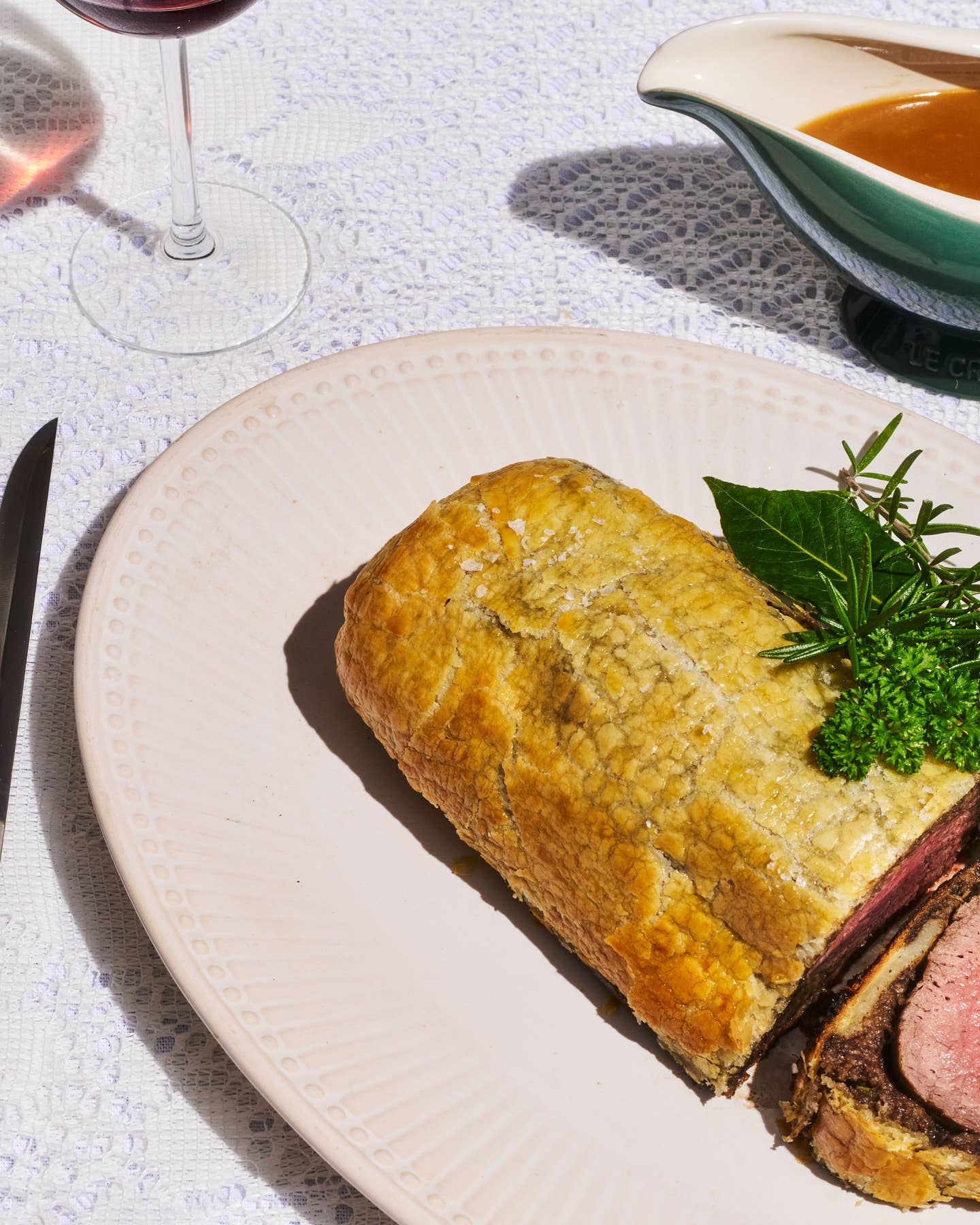
How a Pot of Soup Becomes a Family Legend
Shane Mitchell on recipes too good to write down and a cast iron skillet called Moby Dick
My father, James Edisto Mitchell, painted the sea. His most compelling canvases were the abstract ones, nothing but water and light, capturing in oils an offshore vortex that only blue ocean mariners witness. He served in the merchant marine during WWII, insisted his five children tie a proper bowline, and, in his later years, intimidated younger competitors who lacked the same sharp eye for wind shifts during sailboat races in Narragansett Bay. Dad was also what I call a performance cook, usurping my mother in the kitchen when hungry shipmates or fellow artists showed up, preparing certain closely guarded recipes (onion soup, spaghetti sauce, and shrimp stew among them) with a No. 12 cast-iron skillet, stockpot, and knives no one else was permitted to touch.
"Jesus H. Christ," he would say, emphasis on the H. "Don't ever clean my damned frying pan with soap."
Fish chowder was one of his set pieces. Dad called his version the Ultimate Newport-by-Way-of-Charleston—New Orleans—New York—Paris Better-than-Sex (Almost) Mitchell Fish Chowder. It spoke volumes about his wide appetites. A companion recipe was titled the Slightly Better than Escoffier White Wine Fish Stock. He also picked up a few tricks from his buddy Percy Goodale, a former naval cook and restaurateur, who'd won chowder contests, probably thanks to liberal splashes of Harvey's Bristol Cream sherry. (Sea cooks like their grog.) Dad never wanted help cooking and he wasn't generous about sharing techniques. He expected me and my siblings to figure things out on our own, whether it was sailing, drawing, or cooking.
Thicker than fog blanketing Newport Harbor on a winter night, his chowder took all day to prepare, and tasted best after simmering on the back burner for another full day. Dad made stock with cod frames bought directly off the dock from Grand Banks trawlers, and charmed our local fishmonger Anthony T. Bucolo out of extra haddock or cod fillets, depending on when they landed in his shop on Waite's Wharf. The result was rich with cream, butter, potatoes, onions, and white wine, topped with lardons. A tongue-scalding bowlful, more stew than soup, could thwart the chill of misty New England nights.
A first edition of Melville's Moby Dick illustrated by Rockwell Kent was one of the treasured books my father kept in his studio; when cooking, he often cited the chapter titled "Chowder" in which Ishmael and Queequeg dine on Mrs. Hosea Hussey's version at the Try Pots in Nantucket: "Chowder for breakfast, and chowder for dinner, and chowder for supper, till you began to look for fish-bones coming through your clothes."
When Dad died, we set his ashes adrift on Narragansett Bay. We recited Tennyson's "Crossing the Bar" and poured a full bottle of Mount Gay rum on the waves. A proper sailor's send-off. I inherited his prized skillet, Moby Dick, and a hand-typed copy of the chowder recipe.
Before that, however, we had a profound conversation about creativity. Throughout his career he was fiercely protective of artistic rights, whether on canvas or in a stockpot, and, more mentor than parent to the end, made me swear to guard mine as well. Like the process for making chowder, it was a legacy he conveyed obliquely. I didn't understand at the time, but this promise would have a significant impact on my own desire for expression.
That's why I will never publish the full recipe. I wouldn't be the Old Man's daughter without respecting his wishes. While my relationship with him was often as stormy as the sea he painted, we always found calm over steaming bowls of this chowder.
Recently, a cousin sent me a letter Dad wrote in 1979 referencing “wild dinner parties” where his chowder fed “assorted loonies roaming in and out” of his house above the harbor. “As with all things good,” he wrote, “the best things lie in the mind of the creator, and with those who experience that creation in that moment of time. This goes for things of art as with recipes.”
Keep Reading
Continue to Next Story











